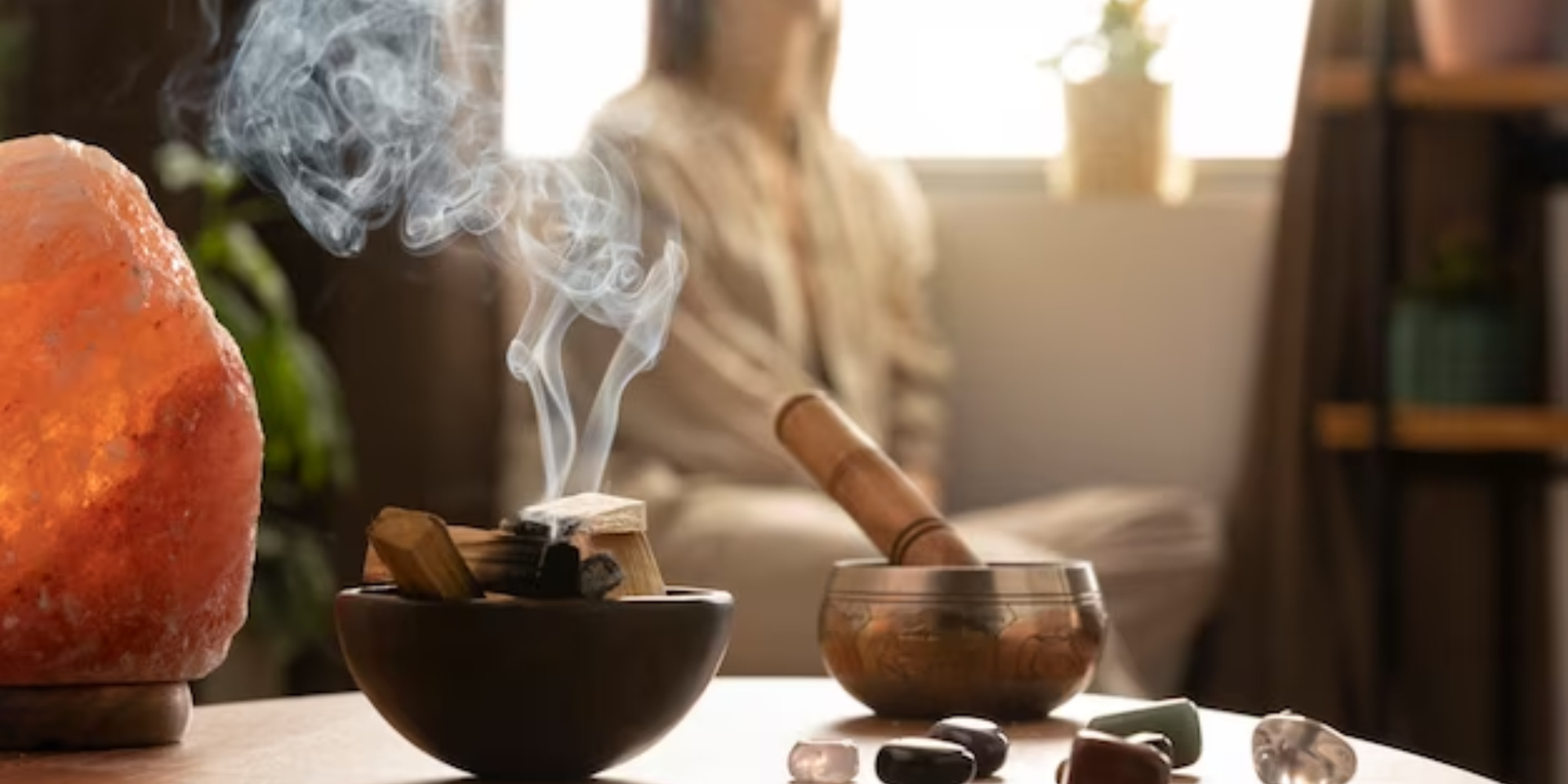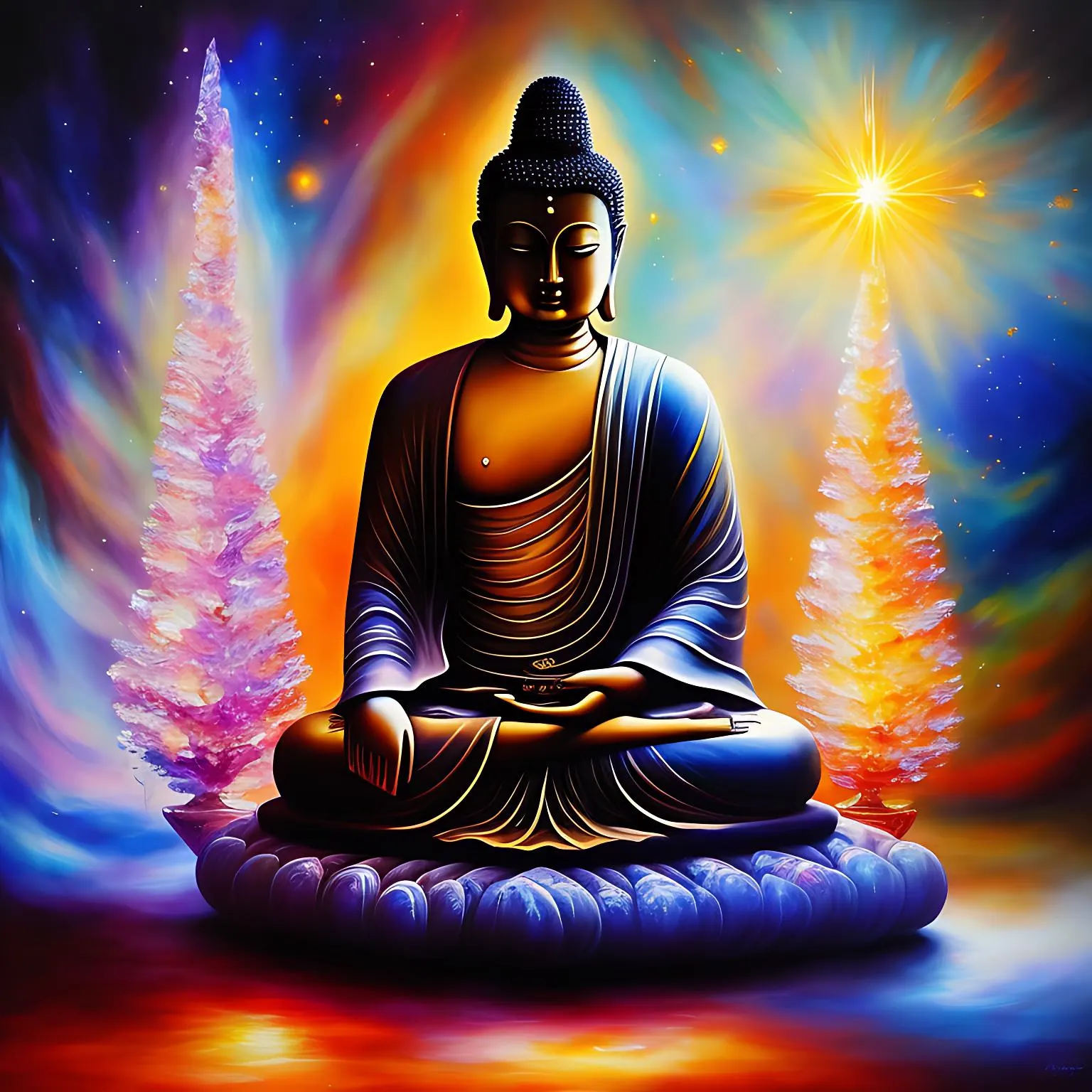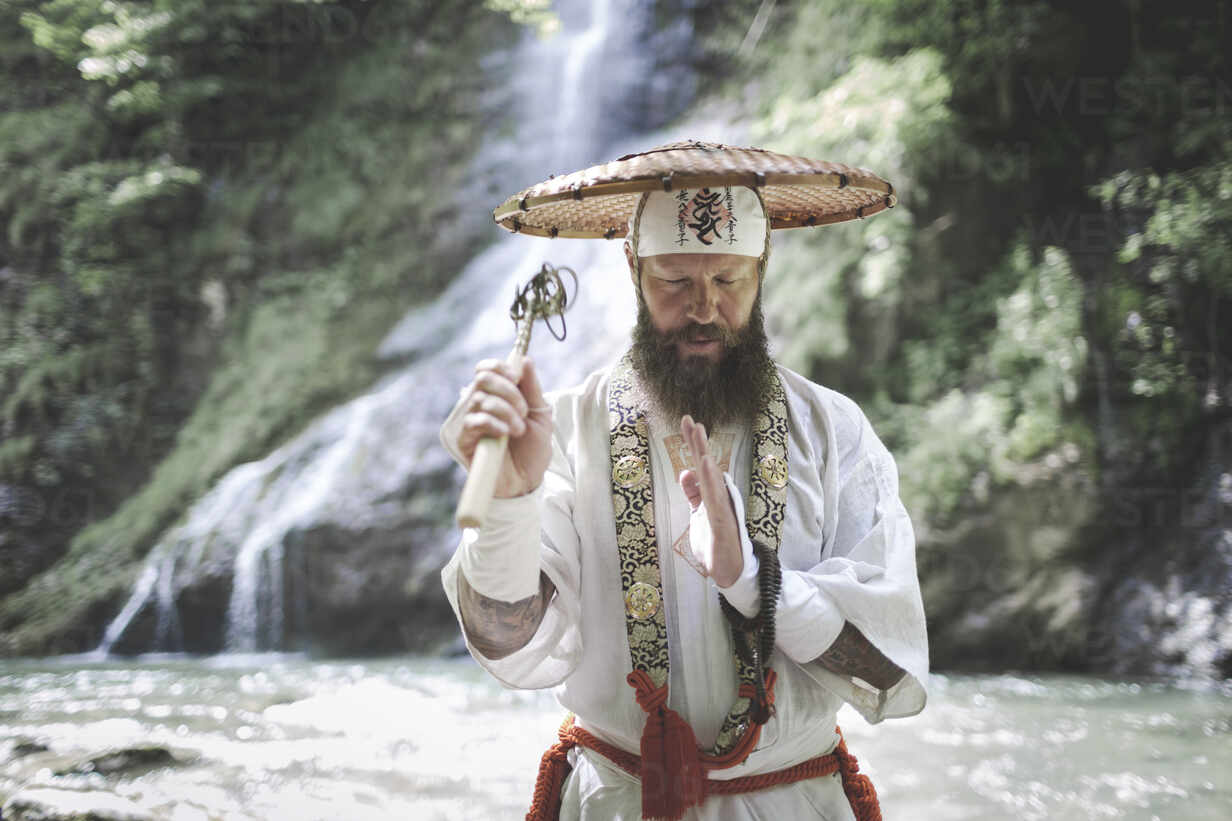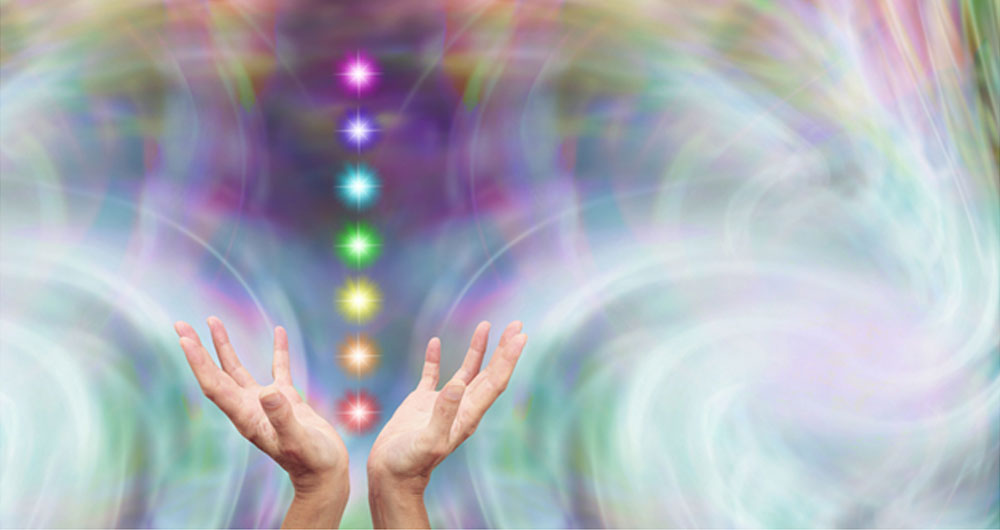
Reiki, a form of energy healing that originated in Japan, has gained popularity worldwide over the years. While many people swear by its benefits, there are also numerous misconceptions and myths surrounding Reiki. In this comprehensive guide, we will debunk some of the most common myths of Reiki, shedding light on what it truly entails.
Myth 1 - Reiki Is A Religion Or Cult
One of the most persistent myths surrounding Reiki is the misconception that it is a religion or cult. This myth often arises from a lack of understanding about what Reiki truly represents. Let's delve into the facts to clarify this misconception:
Fact - Reiki Is Not A Religion, Cult, Or Belief System
At its core, Reiki is a spiritual practice that harnesses the vital life force energy known as "ki" or "qi" in Eastern traditions. This life energy is believed to flow through all living things and plays a pivotal role in health and well-being. Reiki practitioners do not adhere to any specific religious dogma or worship particular deities. Instead, they work with the universal life energy to facilitate healing and promote balance within the recipient's body, mind, and spirit.
Reiki does not require its practitioners or recipients to adopt any particular set of beliefs or rituals. It is an inclusive practice that welcomes individuals from all faiths and belief systems. Whether you are religious, spiritual, or secular, Reiki can be integrated into your life without conflicting with your existing beliefs.
Reiki sessions are not religious ceremonies or occult rituals. They are calming and nurturing experiences in which the practitioner uses their hands to channel and direct the healing energy to the recipient. The focus is on facilitating relaxation, reducing stress, and supporting the body's natural ability to heal itself.
Myth 2 - Reiki Practitioners Are Psychics
Another common myth surrounding Reiki is the mistaken belief that Reiki practitioners must possess psychic or clairvoyant abilities. This myth often stems from a misunderstanding of the nature of Reiki and the role of the practitioner. Let's explore the facts to dispel this misconception:
Fact - Reiki Practitioners Are Not Necessarily Psychics Or Clairvoyants.
Reiki, at its core, is a practice focused on the channeling and manipulation of universal life energy to promote healing and balance within the recipient. It does not require practitioners to have innate psychic or intuitive abilities. While some Reiki practitioners may naturally possess intuitive or empathic skills, these abilities are not a prerequisite for learning and practicing Reiki effectively.
Reiki is a skill that can be learned and developed through training, practice, and dedication. It is a structured and systematic approach to energy healing that incorporates specific hand positions and techniques to facilitate the flow of healing energy. Reiki practitioners undergo training and receive attunements from experienced Reiki Masters to become proficient in the practice.
The training process typically involves learning about the history and principles of Reiki, understanding energy anatomy, and practicing hands-on healing techniques. Through these steps, individuals can become competent Reiki practitioners regardless of their prior psychic or intuitive experiences.
It's important to note that Reiki is not reliant on the practitioner's personal intuition or psychic abilities. Instead, it relies on the universal life energy that flows through all living beings. The practitioner serves as a conduit for this energy, directing it to the recipient's energy centers or chakras to promote physical, emotional, and spiritual healing.
Myth 3 - Reiki Is A Forgotten Tibetan Method
he notion that Reiki is a forgotten Tibetan Buddhist healing method is a misconception that has persisted over the years. It is crucial to clarify this misunderstanding and provide a more accurate historical perspective on Reiki's origins and influences.
Fact: Reiki Is Not A Forgotten Tibetan Buddhist Healing Method
To begin with, Reiki's founder, Mikao Usui, did not "discover" Reiki by studying ancient Tibetan Buddhist sutras. In the early 20th century, when Usui Sensei developed Reiki, access to Tibetan Buddhist writings in Japan was extremely limited. Additionally, Usui Sensei did not need to turn to Tibetan sources for his inspiration, as Reiki draws its roots from several Japanese traditions to which he had exposure.
Usui Sensei's spiritual journey and the development of Reiki were deeply influenced by Japanese belief systems and practices. These include:
- Shinto:Shintoism is Japan's indigenous religion, emphasizing a reverence for natural elements and spirits. Elements of Shintoism, such as the concept of life force or "ki," played a significant role in shaping Reiki.
- Tendai Buddhism:Tendai Buddhism is one of the major Buddhist traditions in Japan. While Reiki is not directly linked to Tibetan Buddhism, it does share some philosophical commonalities with various Buddhist traditions. Usui Sensei's understanding of spiritual concepts, meditation, and mindfulness may have been influenced by his exposure to Tendai Buddhism.
- Shugendo (Mountain Asceticism):Shugendo is a Japanese spiritual practice that involves asceticism in mountainous regions. While Reiki is not an ascetic practice, Usui Sensei's background in Shugendo may have contributed to his spiritual development and understanding of energy.
- Martial Arts:Usui Sensei had experience in martial arts, and this background likely played a role in his development of Reiki. Martial arts emphasize discipline, focus, and the cultivation of inner energy, which are also integral aspects of Reiki practice.
It is essential to recognize that Buddhism arrived in Japan long before it did in Tibet. Japanese Buddhism originated in China, and both Chinese and Indian influences contributed to its development. The connection between Tibetan Buddhism and Japanese Tendai Buddhism is limited to the broader similarities that exist between different Buddhist traditions, given their common roots.
Myth 4 - Reiki Is Magic And Not Accessible To Everyone
A common misconception about Reiki is that it is an intricate and mystical art that can only be mastered by a chosen few. This notion couldn't be further from the truth. Let's debunk this myth and shed light on the simplicity and accessibility of Reiki:
Fact: Reiki Is Not Magic. It Is Not A Gift Bestowed To The Few.
Reiki, at its core, is not a mysterious or exclusive practice. It is grounded in the belief that the universal life energy, known as "ki" or "qi," flows through every living being, and it is accessible to anyone and everyone. This energy is not reserved for a select group of individuals; it is an inherent part of our existence.
While Reiki energy is indeed within us, it is essential to understand that harnessing and using it therapeutically requires training and practice. Reiki is not an innate skill that automatically manifests without effort. Instead, it necessitates a genuine resolve to open oneself up to this healing energy and to develop the ability to channel and direct it effectively.
To practice Reiki in a therapeutic and beneficial manner, individuals should undergo proper training. This training typically involves learning from experienced Reiki Masters who can provide guidance, attunements, and a structured curriculum. Through training, practitioners acquire the knowledge and techniques necessary to facilitate healing in themselves and others.
Reiki training covers a range of topics, including the history and principles of Reiki, energy anatomy, hand positions, and practical healing methods. It also emphasizes the importance of personal development and self-care for the practitioner.
It's important to note that Reiki is not a complex or esoteric practice. Its simplicity is one of its most significant strengths. It does not rely on elaborate rituals or complicated procedures. Instead, Reiki relies on the intention to channel healing energy and the laying on of hands in specific positions.
Myth 5 - Reiki Can Cure All Ailments
One of the prevailing myths about Reiki is the belief that it possesses the extraordinary ability to cure all ailments. This misconception often stems from a misunderstanding of the scope and purpose of Reiki. Let's delve into the facts to dispel this myth:
Fact - Reiki Is Not A Cure-all For Every Ailment.
Reiki is indeed a powerful and versatile healing modality, but it is not a panacea that can miraculously cure every physical or emotional ailment. It is crucial to understand the limitations of Reiki and its role in the context of overall well-being and healthcare.
Reiki is most effective when viewed as a complementary therapy rather than a standalone cure. It works synergistically with conventional medical treatments and can enhance the healing process in various ways. Here's a closer look at how Reiki can complement conventional medicine:
- Stress Reduction:Reiki is renowned for its ability to reduce stress and promote relaxation. High-stress levels can exacerbate many health conditions, so Reiki's calming effects can support the body's natural healing mechanisms.
- Pain Management:Reiki has been reported to alleviate pain and discomfort, making it a valuable tool for individuals dealing with chronic pain conditions. It can enhance pain management strategies, potentially reducing the need for pain medications.
- Emotional Well-being:Reiki can have a positive impact on emotional well-being by reducing anxiety and depression symptoms. It fosters a sense of peace and emotional balance, which can be particularly beneficial for individuals with mental health concerns.
However, it's essential to emphasize that Reiki should not be seen as a substitute for professional medical advice, diagnosis, or treatment. Some ailments require specialized medical interventions, medications, surgeries, or therapies that Reiki cannot replace.
The effectiveness of Reiki also varies from person to person. What works well for one individual may have different results for another. Factors such as the individual's overall health, receptivity to energy healing, and the nature of their ailment can influence the outcomes of Reiki sessions.
Myth 6 - Reiki Can Harm You
Another common misconception about Reiki is the unfounded belief that it can be harmful. This myth can create unnecessary fear and skepticism around this holistic healing practice. To clarify the reality of Reiki's safety, let's explore the facts:
Fact - Reiki is generally considered safe and non-invasive.
Reiki is renowned for its gentle and non-invasive nature. When administered by trained and ethical practitioners, Reiki sessions do not pose any inherent risks or harmful side effects. The key to ensuring a positive and safe experience lies in selecting a qualified Reiki practitioner who adheres to ethical guidelines and professional standards.
Here are several reasons why Reiki is considered safe:
- Natural Energy Flow:Reiki harnesses the natural life energy (ki or qi) that flows through all living beings. Practitioners do not manipulate or force energy; instead, they act as channels, allowing the recipient's body to draw in and use the energy as needed.
- Non-Invasive:Reiki is a touch-based healing method, but it involves light or no physical contact. The recipient remains fully clothed during the session, and there are no invasive procedures or instruments involved.
- Holistic Approach:Reiki focuses on promoting holistic well-being by addressing physical, emotional, and spiritual aspects. It is not a one-size-fits-all approach but is tailored to the individual's needs, ensuring a personalized and gentle experience.
While Reiki is generally safe, it is crucial to exercise due diligence when selecting a Reiki practitioner to ensure a positive and secure experience. Here are some guidelines to consider:
- Qualifications:Choose a Reiki practitioner who has received proper training and certification from a reputable Reiki Master or institution. Training ensures that the practitioner has a thorough understanding of Reiki principles and techniques.
- Ethical Practice:Look for practitioners who adhere to ethical guidelines and professional standards. A practitioner's commitment to maintaining a safe and respectful environment is essential for a positive experience.
- Experience and References:Seek recommendations or references from individuals who have had positive experienceswith a particular Reiki practitioner. A practitioner's experience and track record can be indicators of their reliability.
Myth 7 - Reiki Is A Placebo Effect
A persistent myth surrounding Reiki is the assertion that its perceived benefits are merely a result of the placebo effect—a psychological phenomenon where a person experiences improvements due to their belief in the effectiveness of a treatment, even if the treatment itself has no therapeutic properties. It's essential to explore this myth and provide an accurate perspective on Reiki's efficacy:
Fact - Reiki Is Not Solely A Placebo Effect.
While some critics may argue that the benefits of Reiki can be attributed to the placebo effect, a substantial body of evidence suggests otherwise. Numerous studies and anecdotal accounts have demonstrated that Reiki can produce tangible physiological and psychological effects that extend beyond what can be explained by the placebo effect.
Here are some key findings and reasons why Reiki is not merely a placebo:
- Reducing Stress:Reiki is well-known for its ability to reduce stress and induce relaxation. Studies have shown that Reiki sessions can lead to measurable reductions in stress hormones like cortisol, as well as improvements in heart rate variability, a marker of cardiovascular health. These physiological changes cannot be solely attributed to the placebo effect.
- Pain Management:Research has indicated that Reiki can effectively alleviate pain, including pain associated with conditions like fibromyalgia, cancer, and surgery. Pain relief through Reiki often goes beyond the psychological expectation of pain reduction.
- Immune System Support:Some studies have suggested that Reiki may boost the immune system's function. This immune response is not solely the result of psychological belief but involves complex physiological mechanisms.
- Enhancing Mental Well-being:Reiki has been shown to reduce symptoms of anxiety and depression, promoting mental well-being. These improvements are not solely dependent on a person's expectation of feeling better.
It's important to recognize that while the placebo effect can indeed play a role in the effectiveness of any therapeutic intervention, Reiki's impact extends beyond psychological belief. Reiki is a holistic practice that engages the body's innate ability to heal and restore balance, and it often produces measurable changes in physiological and psychological markers.
Additionally, many individuals who receive Reiki treatments report experiencing sensations of warmth, tingling, and deep relaxation during sessions, which are distinct from the placebo effect and suggest a genuine energetic interaction.
Myth 8 - Reiki Is Expensive
A common misconception about Reiki is that it is prohibitively expensive, making it inaccessible to many individuals seeking its benefits. To dispel this myth and shed light on the affordability of Reiki, let's explore the facts:
Fact - The Cost Of Reiki Sessions Varies Widely
Reiki sessions' cost can vary significantly depending on several factors, including the practitioner's location, experience, and business model. It's important to recognize that Reiki is not inherently expensive, and there are options available to suit various budgets.
Here are key points to consider regarding the cost of Reiki:
- Location:The cost of Reiki sessions often reflects the cost of living and healthcare in a particular region. In areas with a higher cost of living, Reiki sessions may be more expensive. Conversely, in regions with a lower cost of living, Reiki sessions tend to be more affordable.
- Practitioner's Experience:Experienced Reiki practitioners who have completed advanced training and accumulated years of practice may charge higher fees for their services. Their expertise and track record can justify higher costs.
- Business Model:Reiki practitioners offer sessions through various business models. Some operate full-time Reiki practices, while others integrate Reiki into existing wellness or healthcare services. The pricing structure may differ accordingly.
- Affordable Options:Many Reiki practitioners are committed to making Reiki accessible to a broader range of individuals. As a result, some offer sliding scale fees based on income, discounted packages, or even donation-based sessions. These options make Reiki more affordable and inclusive.
It's essential to remember that the cost of a Reiki session should not be a barrier to those who genuinely seek its benefits. Practitioners who are passionate about Reiki often prioritize its accessibility by offering flexible pricing options. It is advisable to research and reach out to practitioners in your area to inquire about their pricing structure and any available discounts or affordable options.
People Also Ask
Is There Any Evidence That Reiki Works?
Reiki is a holistic healing practice that has gained popularity over the years, and while some people report experiencing positive effects from Reiki treatments, the scientific evidence regarding its efficacy remains inconclusive.
Research on Reiki is ongoing, and studies have yielded mixed results. Some studies suggest that Reiki may have benefits such as reducing stress, improving relaxation, and enhancing pain management, while others have found no significant effects beyond a placebo response. It's essential to recognize that individual experiences with Reiki can vary, and some individuals may find it beneficial for their overall well-being, even if the scientific evidence is not yet definitive.
What Is The Disadvantage Of Reiki?
While Reiki is generally considered safe and non-invasive, there are a few potential disadvantages or limitations to be aware of:
- Not a Substitute for Medical Care:Reiki should not replace conventional medical advice, diagnosis, or treatment. It is a complementary therapy meant to support overall well-being but may not be effective for treating specific medical conditions on its own.
- Cost:The cost of Reiki sessions can vary, and some individuals may find it expensive, depending on the practitioner and location. However, many practitioners offer affordable options or sliding scale fees to address this concern.
- Effectiveness Varies:Reiki's effectiveness varies from person to person. Some individuals may experience significant benefits, while others may not notice substantial changes. Patience and an open mind are essential when exploring Reiki.
- Practitioner Variation:The quality of Reiki sessions can vary depending on the practitioner's experience and training. It's essential to choose a qualified and ethical practitioner for the best possible experience.
What Are The Beliefs Of Reiki Healing?
Reiki healing is rooted in several core beliefs:
- Universal Life Energy:Reiki practitioners believe in the existence of a universal life energy or "ki" (also known as "qi" in Chinese), which flows through all living beings. This life energy is considered vital for health and well-being.
- Energy Channeling:Reiki practitioners serve as channels for this universal life energy. They do not use their own energy but facilitate the flow of energy to the recipient through their hands.
- Balance and Harmony:Reiki aims to promote balance and harmony within the recipient's body, mind, and spirit. It is believed that imbalances in energy can lead to physical or emotional ailments, and Reiki helps restore this balance.
- Holistic Approach:Reiki is a holistic practice that addresses the person as a whole, rather than focusing solely on physical symptoms. It considers the interconnectedness of physical, emotional, and spiritual well-being.
- Self-Healing:Reiki encourages individuals to tap into their innate ability for self-healing. It is not solely reliant on the practitioner's actions but empowers the recipient to participate in their healing process.
- Relaxation and Stress Reduction:Reiki is known for its ability to induce relaxation, reduce stress, and promote a sense of calm and well-being. This relaxation is believed to be conducive to the body's natural healing mechanisms.
Conclusion
The world of Reiki is a fascinating and multifaceted one, often shrouded in misconceptions and myths. However, by delving into the facts and dispelling these common misconceptions, we can gain a clearer and more accurate understanding of what Reiki truly is.
From the misconception that Reiki is a religion or cult to the belief that it can cure all ailments, we have examined and debunked these myths one by one. Reiki is not bound by religious dogma, and it can peacefully coexist with a wide range of belief systems. It is not a magical panacea but a holistic practice that complements conventional medicine and promotes relaxation and balance. Reiki practitioners do not wield their personal energy but serve as channels for universal life energy, ensuring both safety and efficacy. And, whether in-person or at a distance, Reiki can be a source of healing and comfort.
Understanding the truths about Reiki empowers us to make informed decisions about our health and well-being. It opens the door to exploring Reiki as a valuable addition to our holistic health journey, offering relaxation, stress relief, and a sense of spiritual connection.




